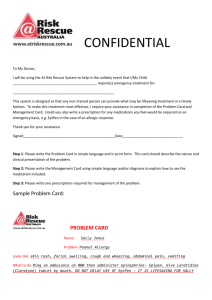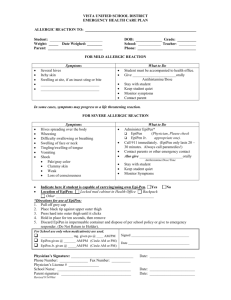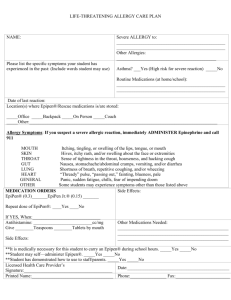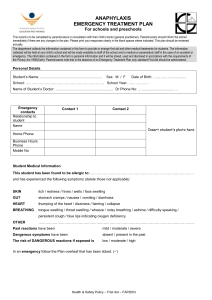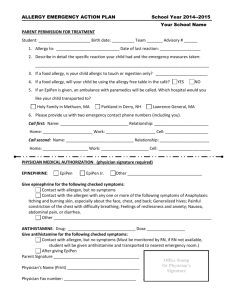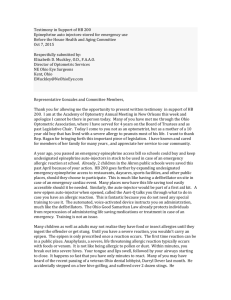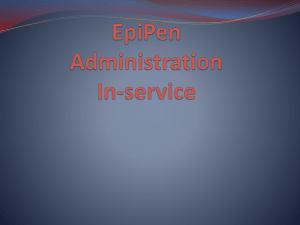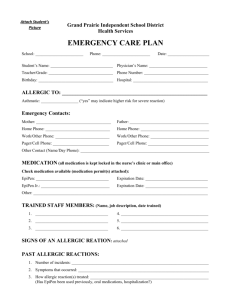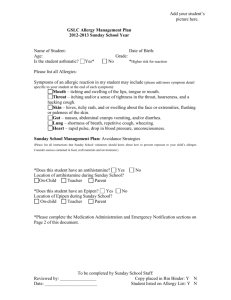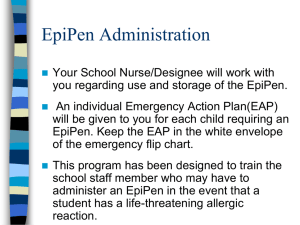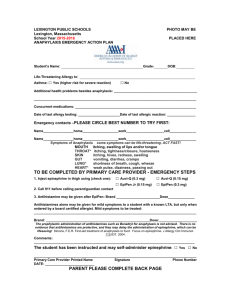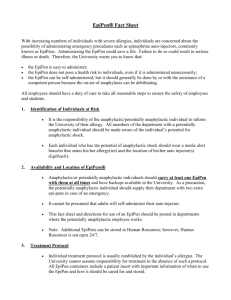ANAPHYLAXIS care plan
advertisement
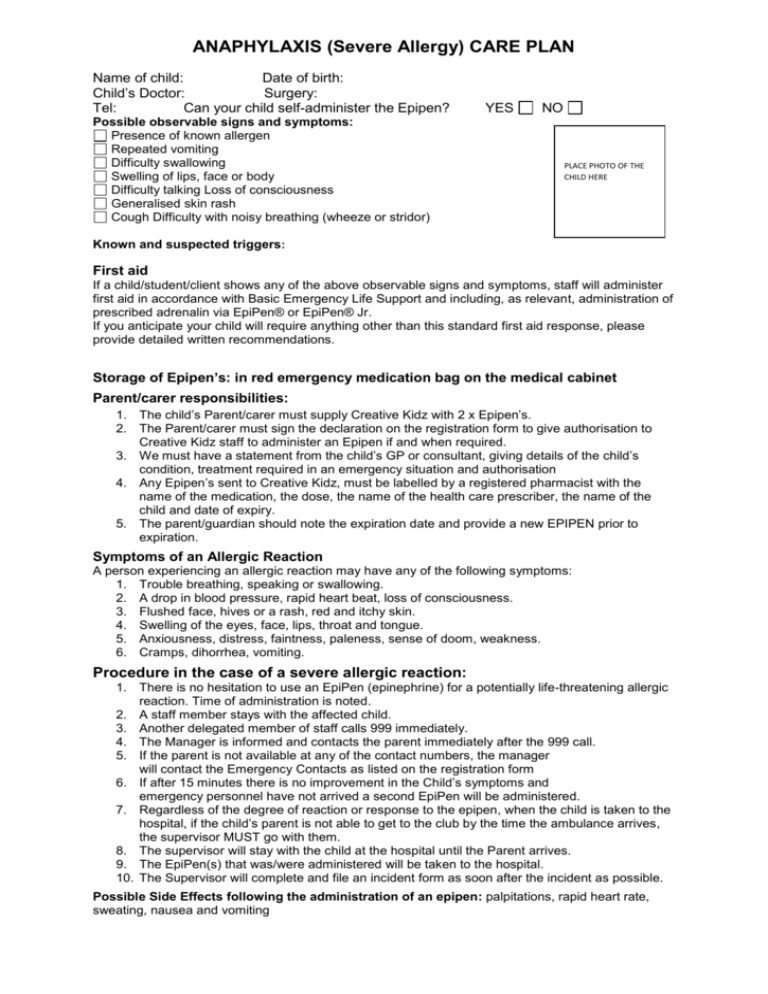
ANAPHYLAXIS (Severe Allergy) CARE PLAN Name of child: Date of birth: Child’s Doctor: Surgery: Tel: Can your child self-administer the Epipen? Possible observable signs and symptoms: Presence of known allergen Repeated vomiting Difficulty swallowing Swelling of lips, face or body Difficulty talking Loss of consciousness Generalised skin rash Cough Difficulty with noisy breathing (wheeze or stridor) YES NO PLACE PHOTO OF THE CHILD HERE Known and suspected triggers: First aid If a child/student/client shows any of the above observable signs and symptoms, staff will administer first aid in accordance with Basic Emergency Life Support and including, as relevant, administration of prescribed adrenalin via EpiPen® or EpiPen® Jr. If you anticipate your child will require anything other than this standard first aid response, please provide detailed written recommendations. Storage of Epipen’s: in red emergency medication bag on the medical cabinet Parent/carer responsibilities: 1. The child’s Parent/carer must supply Creative Kidz with 2 x Epipen’s. 2. The Parent/carer must sign the declaration on the registration form to give authorisation to Creative Kidz staff to administer an Epipen if and when required. 3. We must have a statement from the child’s GP or consultant, giving details of the child’s condition, treatment required in an emergency situation and authorisation 4. Any Epipen’s sent to Creative Kidz, must be labelled by a registered pharmacist with the name of the medication, the dose, the name of the health care prescriber, the name of the child and date of expiry. 5. The parent/guardian should note the expiration date and provide a new EPIPEN prior to expiration. Symptoms of an Allergic Reaction A person experiencing an allergic reaction may have any of the following symptoms: 1. Trouble breathing, speaking or swallowing. 2. A drop in blood pressure, rapid heart beat, loss of consciousness. 3. Flushed face, hives or a rash, red and itchy skin. 4. Swelling of the eyes, face, lips, throat and tongue. 5. Anxiousness, distress, faintness, paleness, sense of doom, weakness. 6. Cramps, dihorrhea, vomiting. Procedure in the case of a severe allergic reaction: 1. There is no hesitation to use an EpiPen (epinephrine) for a potentially life-threatening allergic reaction. Time of administration is noted. 2. A staff member stays with the affected child. 3. Another delegated member of staff calls 999 immediately. 4. The Manager is informed and contacts the parent immediately after the 999 call. 5. If the parent is not available at any of the contact numbers, the manager will contact the Emergency Contacts as listed on the registration form 6. If after 15 minutes there is no improvement in the Child’s symptoms and emergency personnel have not arrived a second EpiPen will be administered. 7. Regardless of the degree of reaction or response to the epipen, when the child is taken to the hospital, if the child’s parent is not able to get to the club by the time the ambulance arrives, the supervisor MUST go with them. 8. The supervisor will stay with the child at the hospital until the Parent arrives. 9. The EpiPen(s) that was/were administered will be taken to the hospital. 10. The Supervisor will complete and file an incident form as soon after the incident as possible. Possible Side Effects following the administration of an epipen: palpitations, rapid heart rate, sweating, nausea and vomiting
